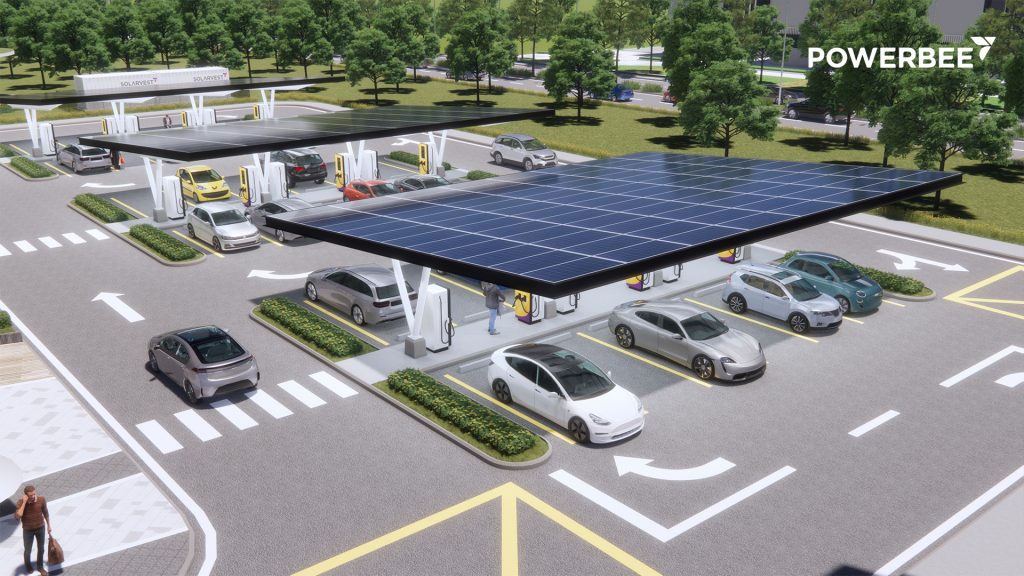Solar-powered Electric Vehicle (EV) charging stations offer several benefits that contribute to the sustainability, cost-efficiency, and environmental advantages of electric transportation. Here are the key benefits of using solar power for EV charging stations:
- Clean and Renewable Energy: Solar power is a clean and renewable energy source, meaning it produces electricity without emitting greenhouse gases or pollutants. Using solar panels to generate electricity for EV charging reduces the carbon footprint of the transportation sector.
- Reduced Operating Costs: Solar energy is abundant and free once the solar panels are installed. Charging stations that utilize solar power can significantly reduce their electricity costs, making EV charging more affordable for users and financially sustainable for operators.
- Energy Independence: Solar-powered EV charging stations are less reliant on the grid, reducing vulnerability to power outages or fluctuations in energy prices. This can enhance the reliability of charging services.
- Grid Relief: Solar-powered charging stations can alleviate strain on the grid during peak demand hours. They generate electricity locally, reducing the need for drawing power from the grid during high-demand periods, which can help prevent grid congestion and improve overall grid stability.
- Net Metering and Energy Storage: Excess solar energy generated during sunny days can be fed back into the grid or stored in batteries for use during cloudy days or at night. This ensures a continuous power supply for charging, even when the sun is not shining.
- Environmental Benefits: By relying on solar power, EV charging stations can reduce their carbon emissions, contributing to cleaner air and a lower overall environmental impact. This aligns with sustainability goals and environmental regulations.
- Public Relations and Marketing: Solar-powered charging stations can be a powerful marketing tool for businesses and municipalities, showcasing their commitment to sustainability and renewable energy. This can attract environmentally-conscious customers and improve public perception.
- Energy Efficiency: Solar panels are becoming more efficient and cost-effective over time. Modern solar technologies can convert a significant portion of sunlight into electricity, maximizing the energy output of solar-powered charging stations.
- Rural and Remote Charging: Solar-powered EV charging stations can be deployed in remote or off-grid locations where grid connectivity is limited or expensive to establish. This extends EV charging accessibility to areas that might otherwise lack infrastructure.
- Sustainability Goals: Many organizations and governments have sustainability goals and mandates to reduce carbon emissions. Incorporating solar power into EV charging stations helps meet these objectives, aligning with broader environmental initiatives.
- Long-Term Cost Savings: While the initial installation cost of solar panels may be significant, the long-term cost savings from reduced energy bills and potential revenue from selling excess energy back to the grid can make solar-powered EV charging stations financially viable over time.
- Scalability: Solar charging infrastructure is easily scalable. Additional solar panels can be added to accommodate growing demand for EV charging, making it an adaptable solution for the future.
Incorporating solar power into EV charging stations is an effective way to combine the benefits of renewable energy with the growth of electric transportation, promoting sustainability and reducing the environmental impact of vehicles.

